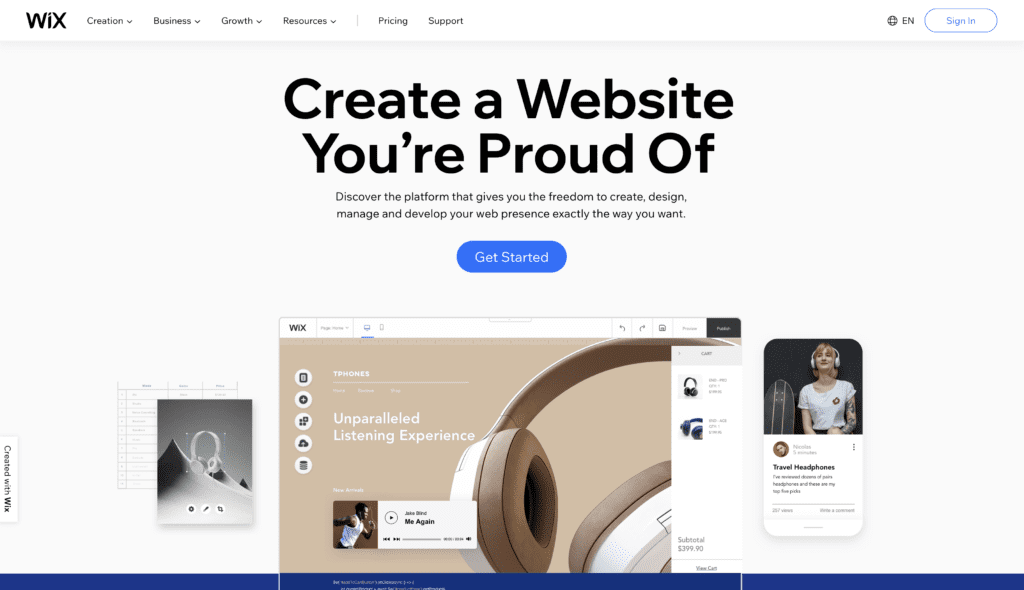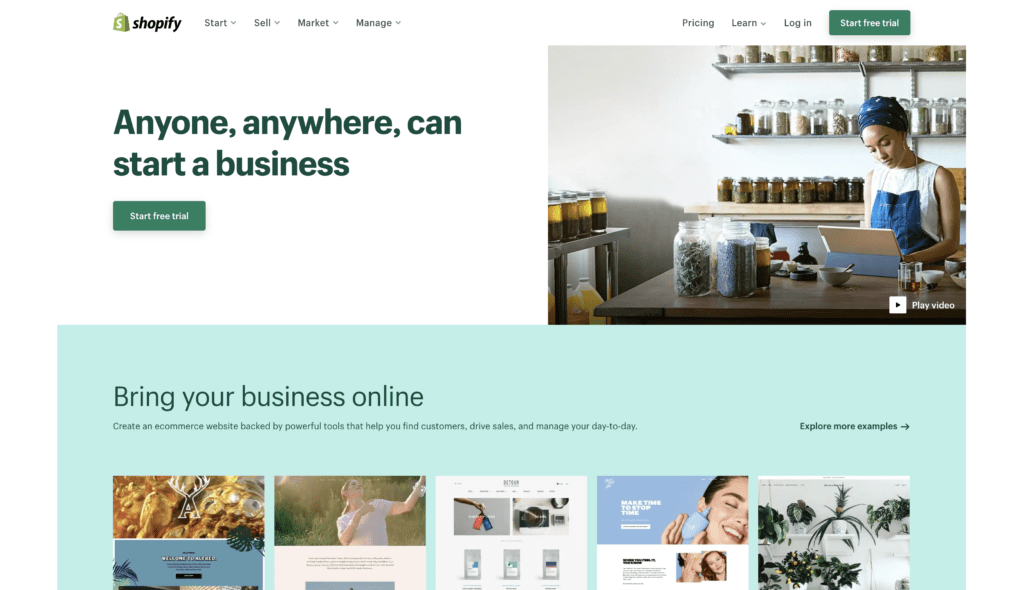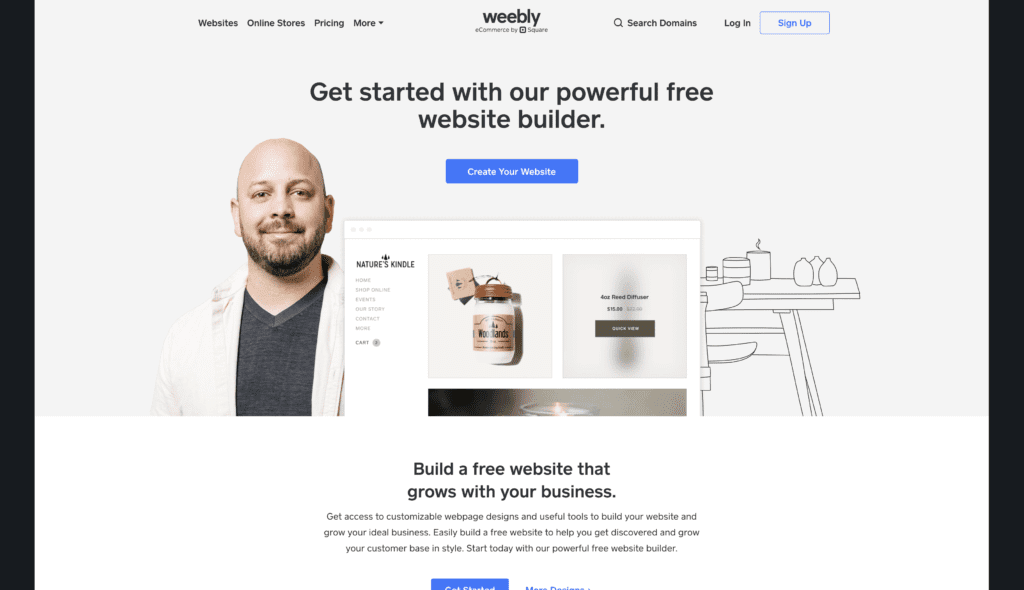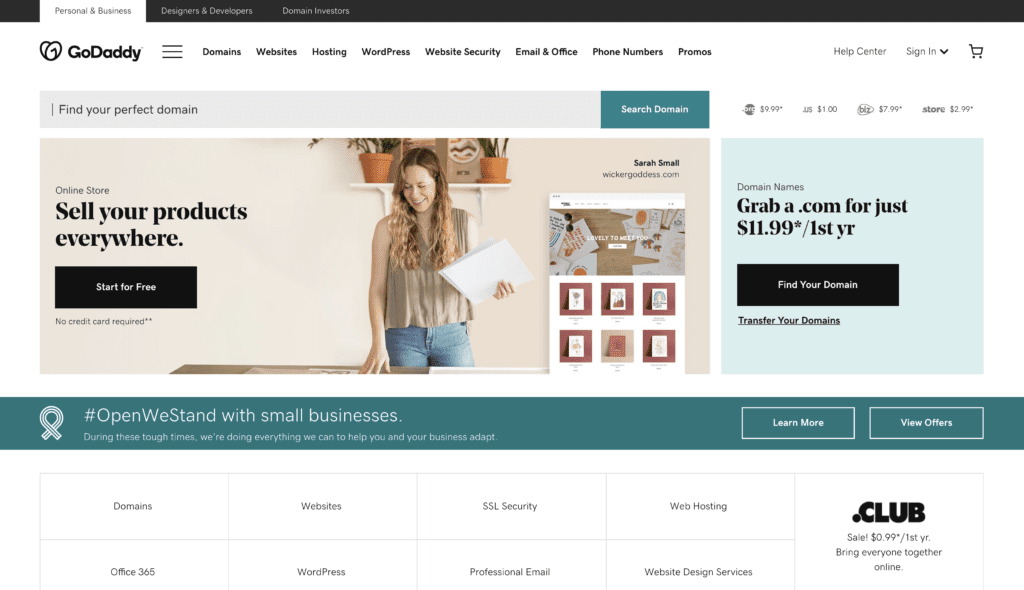Custom Built Websites Versus WIX, Squarespace, Godaddy And Others
What are the differences between a custom-built website versus a templated website builder such as Wix, Squarespace, Shopify, and others?
2020 has thrown many wrenches into the way that businesses and organizations need to think about commerce. Having a functioning website is more critical than ever. The truth is that a functioning website today will barely get you noticed.
Just having a website means nothing.
How your website reaches others is what you need to focus on, and most website builders spend little to no time helping clients that way.
Because most companies and organizations are more concerned with cost (rightfully so), let’s look at what you get for your dollar when using other website builders.
WIX
According to websitebuilderexpert.com, Wix prices range from $13 to $500 per month (billed annually) across eight pricing plans. The Combo plan is the cheapest at $13 per month and gives you an ad-free site. The $17 per month Unlimited plan is best for freelancers, while online sellers can start with the $23 per month Business Basic plan. Wix also has a free plan, which is a great way to test the waters before committing.

Here are a few things to know about WIX:
- Good builder for those that have the time to spend creating something (please take the time though to learn about fonts, colors, UI, and UX)
- The free plan does not include a custom domain
- The free plan has WIX ads all over it (not smart if you are trying to look professional)
- The free plan does not let you sell
- The free plan does not give support
- You will need to buy a domain and connect it
- You will need to do all of your SEO
- Not as much flexibility as a custom-built site
- You will need to set the site up to be mobile responsive (make sure it looks right on mobile devices)
- Email and phone support if you can find the phone number
We have used WIX in the early stages of our company because it was easy to give clients the ability to make their changes. We no longer use WIX as there are better solutions, and clients can still make their changes if they would like.
SQUARESPACE
First, let’s look at pricing. Squarespace prices can range from $12/mo to around $50/mo, depending on what you need. Squarespace claims to be a drag and drop builder. While that claim is somewhat true, realize that you can’t drag and drop anywhere.
According to websitebuilderexpert.com, Squarespace offers built-in tools that support bloggers, small business owners, and creatives. G Suite and PayPal integrations are available, plus SEO tools, e-commerce functions, and easy social media integration. You don’t need any coding skills to use Squarespace, but a little technical confidence will help a lot. Squarespace’s new version, 7.1, also allows for more design customization than ever.

Here are a few things to know about Squarespace:
- They have over 60 templates to choose from (realize that others are using the same thing that you are, so your site might look like someone else’s)
- They have a mobile editor which allows for changes to photos, etc. on the fly
- Great for a photographer or art styled websites
- Many Squarespace sites look similar in style
- Need to connect your domain
- Need to do your SEO
- You need to set up analytics
- Not as much flexibility as a custom-built site
- Need to make sure your SSL is connected correctly
- Email or chat support
We used Squarespace in the early stages of our development. We haven’t used Squarespace in years. We found that many of the sites started to all look the same. We want to make sure that our client sites look different and are custom made not template driven.
SHOPIFY
According to rocketpark.com, Shopify uses a tiered pricing model. It includes three levels. The basic is $29 a month. The mid-range is $79 a month, while the advanced will run you $299 a month. The advanced Shopify tire offers extra benefits such as lower card processing rates and transaction fees, advanced reporting options, and more staff account. So you will need to check out the features and benefits you get with each to determine which one is best for your specific needs.
Template options like Shopify allow you to get your site up and going quickly and can offer more convenience, while custom sites might take a little more time and effort. However, a built-for-you site will give you a lot more options and functionality to support your business as it evolves, making it a great investment with a huge payoff in the long run.

Here are a few things to know about Shopify:
- They provide you with templates to use for your store
- Relatively simple interface to use but not a drag and drop platform
- You will need to upload everything to include pics, descriptions, sku numbers, etc
- You need to connect your domain
- Not as much flexibility as a custom-built site
- You need to set up your SEO
- You need to set up analytics
- Email or chat support
WEEBLY
According to websitebuilderexpert.com there are other website builders on the market, such as Weebly. Weebly is one of the best builders for small business sites and portfolios. Their pricing ranges from free to $75/mo. It’s fairly easy to use and comes packed with apps and features to help grow your site, from SEO to ecommerce. You can build a simple, stylish site with Weebly’s drag-and-drop editor, and it’s a great choice for portfolios, blogs, online stores, and business sites.
Weebly is not as easy to use when it comes to dragging and dropping like WIX, but it does get the job done for most small companies. They offer around 50 templates to use.

Few things to know about Weebly:
- Pricing ranges from free to $75/mo
- Fairly easy to use
- Not as much flexibility as a custom-built site
- You will need to connect your domain
- You will need to set up your SEO
- They offer several apps to help
- Email and chat support. Phone support comes with the most expensive plan
GODADDY
Let’s take a look at Godaddy. According to websitebuilderexpert.com, GoDaddy is a beginner-friendly website builder that uses Artificial Design Intelligence (ADI) to make creating your website easier and faster than ever before. It uses the information you enter to create a customized site in a matter of minutes, making it perfect for beginners who want to publish a simple site online.
While that might sound pretty cool, it isn’t all that it’s cracked up to be. The truth is that you can get a site up in minutes, but that site might not look very good.
Their pricing scales from $10/mo to $25/mo, making them a good bit cheaper than some other builders. They offer phone support as well as chat and email.

One problem with Godaddy is their tech support. While they offer phone, email, and chat support, they spend more time selling you on new features. In other words, they don’t fix the problem. For one of our clients, we spent 35 minutes on hold to get someone who then started selling us on other features without ever asking what we called for.
While it sounds like we are bashing Godaddy, they do offer a variety of products and services that might be right for you and your company. Just realize that you are not going to get the support that they claim to give, which leaves you doing most of this on your own.
We stay away from using Godaddy anytime we can.
Your Story
The last thing that we wanted to talk about is your story and connecting with your end-user.
Having a website isn’t enough.
There are several things that you need to be aware of when it comes to creating a website. Here are a few:
- Am I connecting with my end-user?
- Are they finding me?
- Do they know what I do?
- Is my site about me or my end-user?
- Am I providing clear points of action?
- Do I have a solid marketing strategy, or am I throwing a website up and hoping it works?
There is a free PDF that we offer, which highlights some of these pitfalls. We would recommend that you download it, review it, and contact us if you have any questions.
No matter what you decide, you want your website to stand out and connect. Ask yourself this question, “did I get into business to manage my website?” The answer to that question might make your decision a bit easier.
